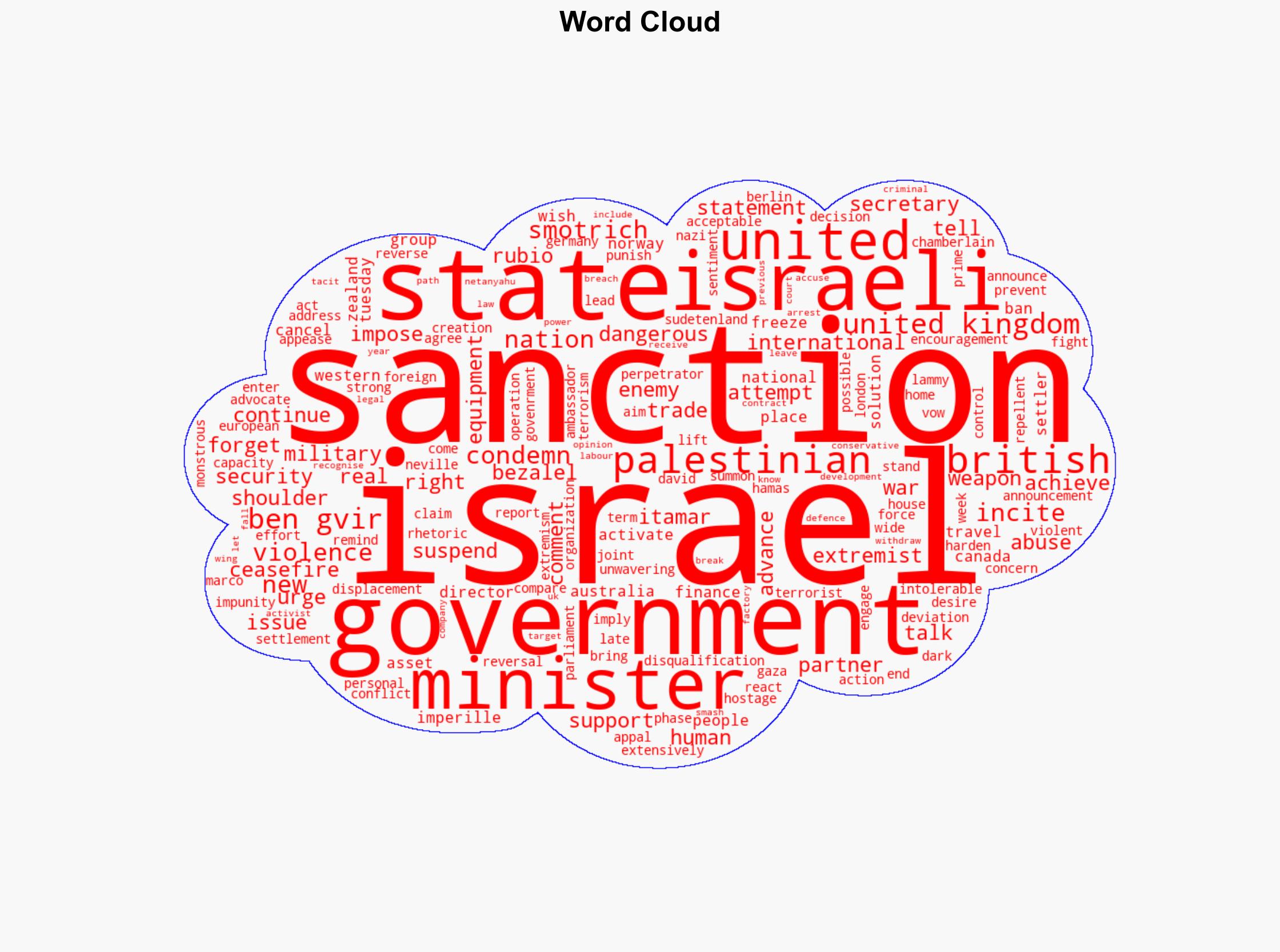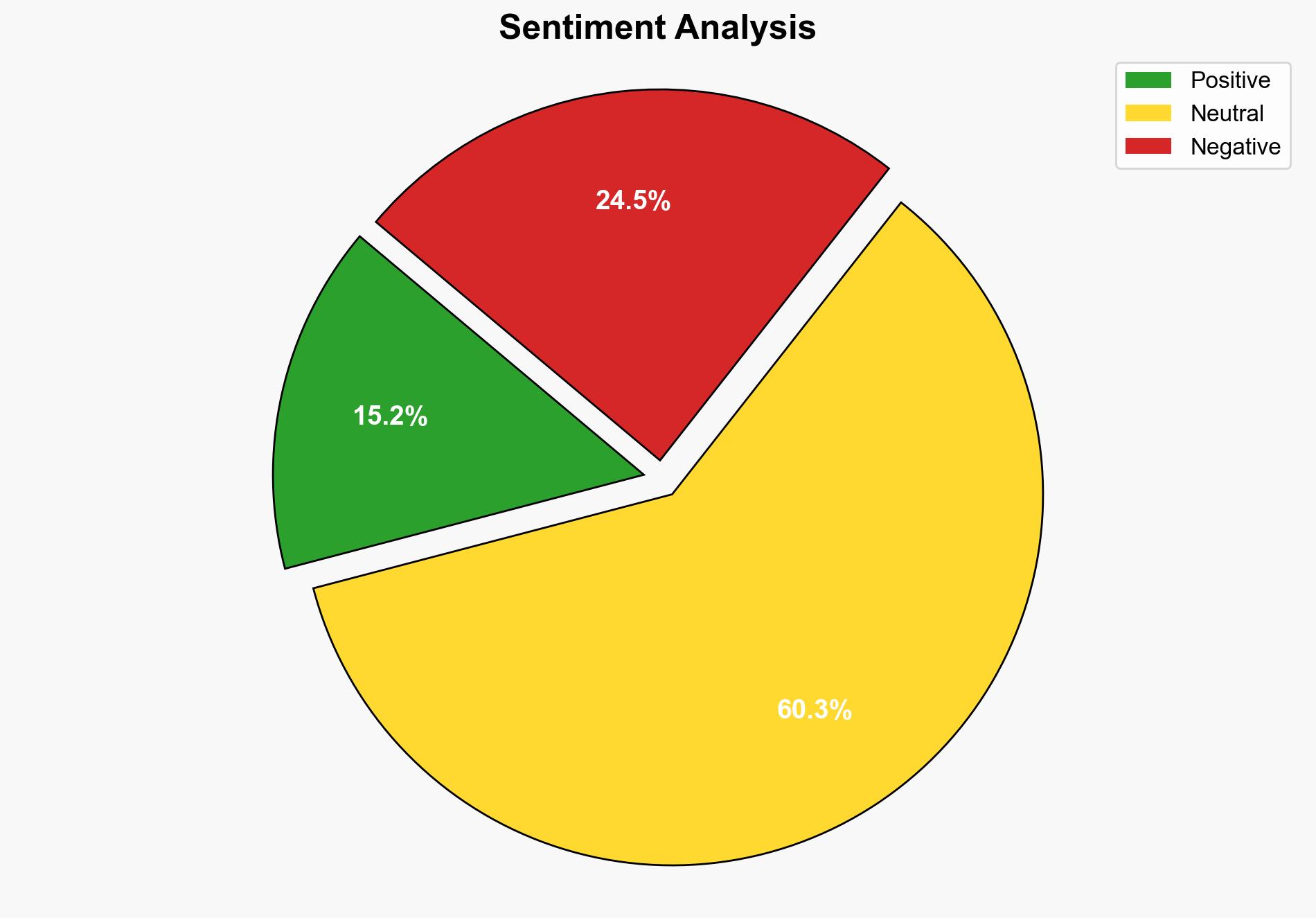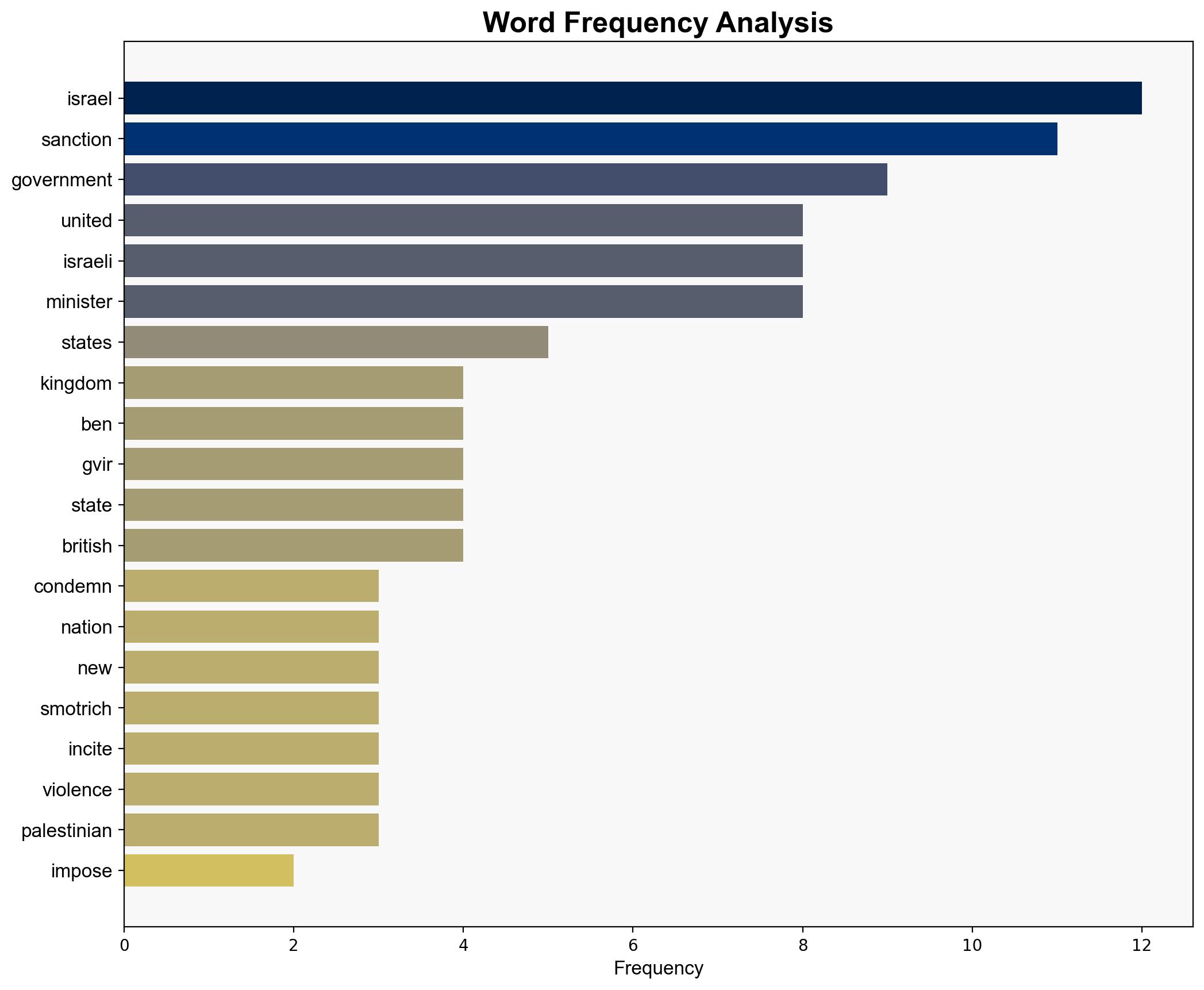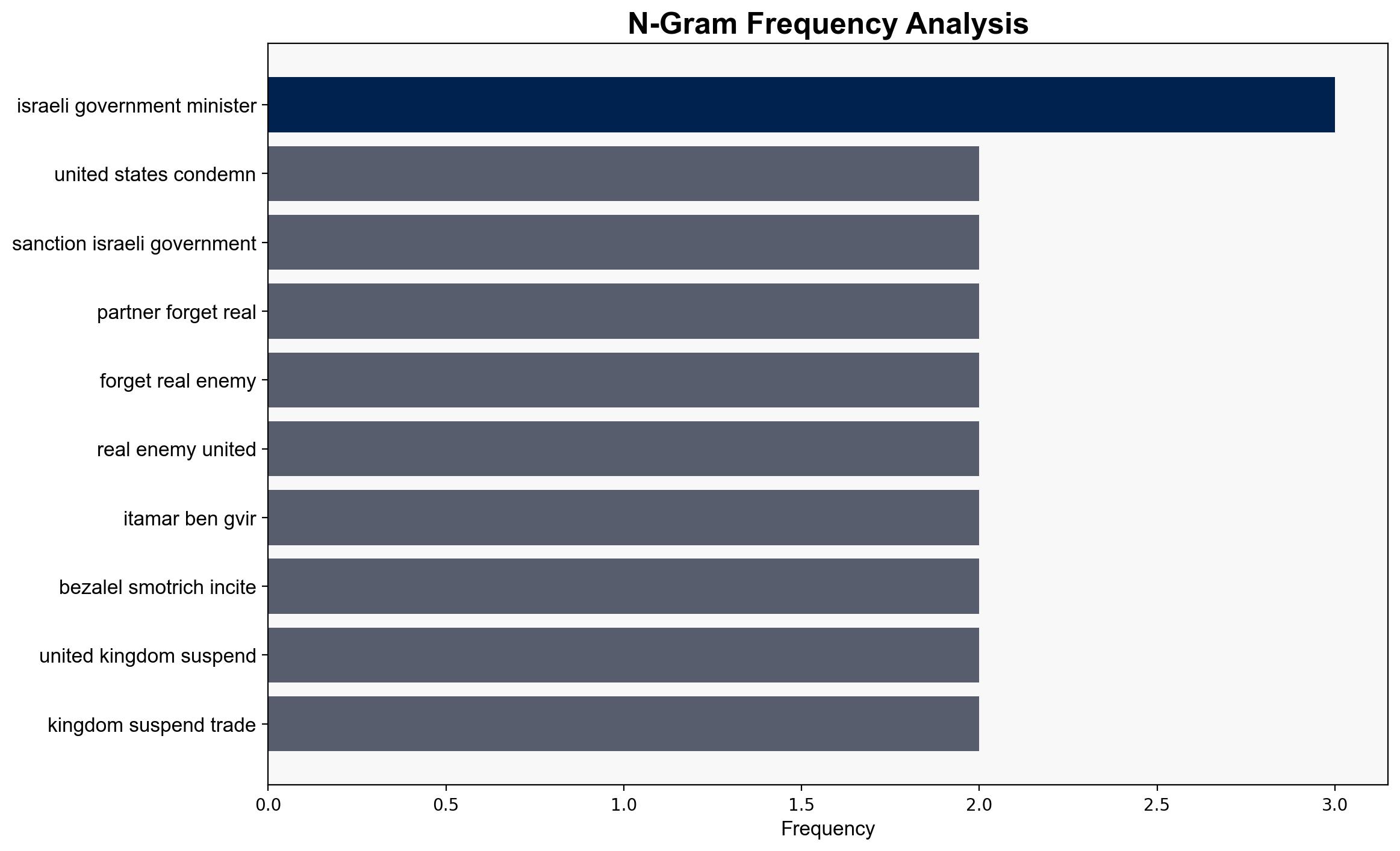‘Don’t Forget Who the Real Enemy Is’ Rubio Condemns Britain For Sanctioning Israeli Government Ministers – Breitbart News
Published on: 2025-06-11
Intelligence Report: ‘Don’t Forget Who the Real Enemy Is’ Rubio Condemns Britain For Sanctioning Israeli Government Ministers – Breitbart News
1. BLUF (Bottom Line Up Front)
Recent sanctions imposed by several Western nations, including the United Kingdom, on Israeli government ministers Itamar Ben Gvir and Bezalel Smotrich have sparked significant diplomatic tensions. The United States, represented by Marco Rubio, has condemned these actions, urging a reversal and emphasizing the need to focus on common threats. This situation underscores the complexities in international relations concerning Israel and the broader Middle East conflict.
2. Detailed Analysis
The following structured analytic techniques have been applied to ensure methodological consistency:
Cognitive Bias Stress Test
The analysis identifies potential biases in the diplomatic responses, particularly the framing of Israel’s actions versus those of other regional actors. The emphasis on historical analogies, such as the comparison to Neville Chamberlain, may skew perceptions of current events.
Bayesian Scenario Modeling
Probabilistic forecasting suggests a moderate likelihood of increased diplomatic isolation for Israel if sanctions persist, potentially escalating regional tensions. Conversely, a reversal could stabilize relations but might embolden further aggressive actions by Israeli ministers.
Network Influence Mapping
The sanctions reveal a complex web of influence, with Western nations aligning against specific Israeli policies while the United States maintains a supportive stance towards Israel. This dynamic may affect future coalition-building efforts in the region.
3. Implications and Strategic Risks
The sanctions could exacerbate existing geopolitical tensions, potentially leading to increased instability in the Middle East. There is a risk of further polarizing international alliances, which might impact global counter-terrorism efforts and economic partnerships. The situation also poses a risk to ongoing peace negotiations and could lead to a hardening of positions on both sides.
4. Recommendations and Outlook
- Encourage diplomatic dialogue between the involved nations to de-escalate tensions and seek a balanced approach to addressing human rights concerns.
- Monitor the situation closely for signs of escalation or shifts in alliances, particularly in relation to U.S. foreign policy and its impact on regional stability.
- Scenario-based projections:
- Best Case: Sanctions are lifted, leading to renewed diplomatic engagement and progress in peace negotiations.
- Worst Case: Sanctions lead to increased isolation of Israel, resulting in heightened regional conflict and disruption of international relations.
- Most Likely: Continued diplomatic tensions with periodic negotiations aimed at finding a compromise solution.
5. Key Individuals and Entities
Itamar Ben Gvir, Bezalel Smotrich, Marco Rubio, David Lammy
6. Thematic Tags
national security threats, cybersecurity, counter-terrorism, regional focus





